Coronavirus lockdowns and civil liberties collide in a remote corner of California
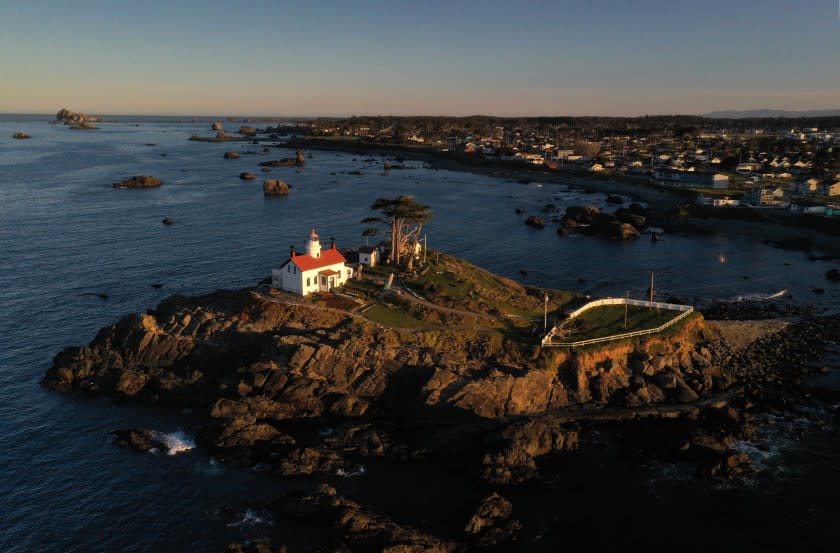
In Del Norte County, which lies along California’s northern coast, officials are straddling a tenuous line: On the one side, they are desperate to keep their residents free of a deadly virus raging across the globe; on the other, they can't ignore their community’s libertarian tendencies and traditions.
“For people living here, we kind of naturally social distance already,” said the county’s sheriff, Erik Apperson, who noted that many of the county’s residents lived here precisely because they wanted to avoid the crowds and traffic found elsewhere in the state.
“But, if we start pushing too far onto people’s civil rights and personal liberties — their ability to move freely, or get out onto the ocean to fish — well, what are we doing here?” he said, referring to his office’s role in defending and enforcing the U.S. Constitution.
Crescent City, the county seat, is roughly 20 miles south of the Oregon border. It's wedged between the Pacific Ocean and an expansive range of steep, densely forested mountains. Poor and remote, it is known for having experienced 41 tsunamis since 1933, and somehow coming back after each one.
It's also where Bigfoot is rumored to live, among the redwoods that blanket this coastal range. On a drive south from the Oregon border on Monday morning, sightings of sasquatch statues were frequent — and almost all were adorned with face masks.
According to county officials and residents, the city, and Del Norte County as a whole, often feels like an island — isolated from the concerns and hubbub of the rest of the state.
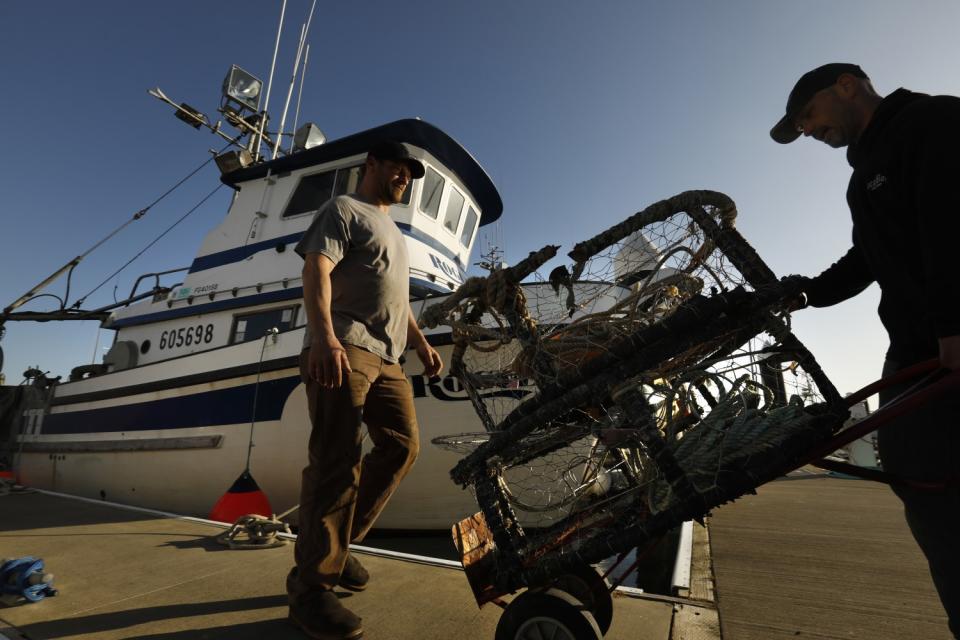
“When the rest of California has a drought, we look around and think, 'What? Where?'” said Apperson. “While we’re physically in California, we often don’t feel the impact of things happening elsewhere.”
As of Tuesday, the county had reported only two recorded cases of coronavirus infection and no deaths. None of the people the Los Angeles Times interviewed Monday personally knew anyone who had it.
“I heard that one of the people wasn’t from here,” said Richard Warner, 33, a commercial crab fisherman, who was cleaning empty crab pots on a dock at Crescent City’s harbor.
Health and enforcement officials are also wary of outsiders.
Bill Steven, a spokesman for both the county Sheriff’s Department and its emergency operations, said he couldn’t confirm or deny the residence status of that case, nor the other case. But he is concerned that although the county has made it through the pandemic relatively unscathed, when the state reopens, that bubble could burst.
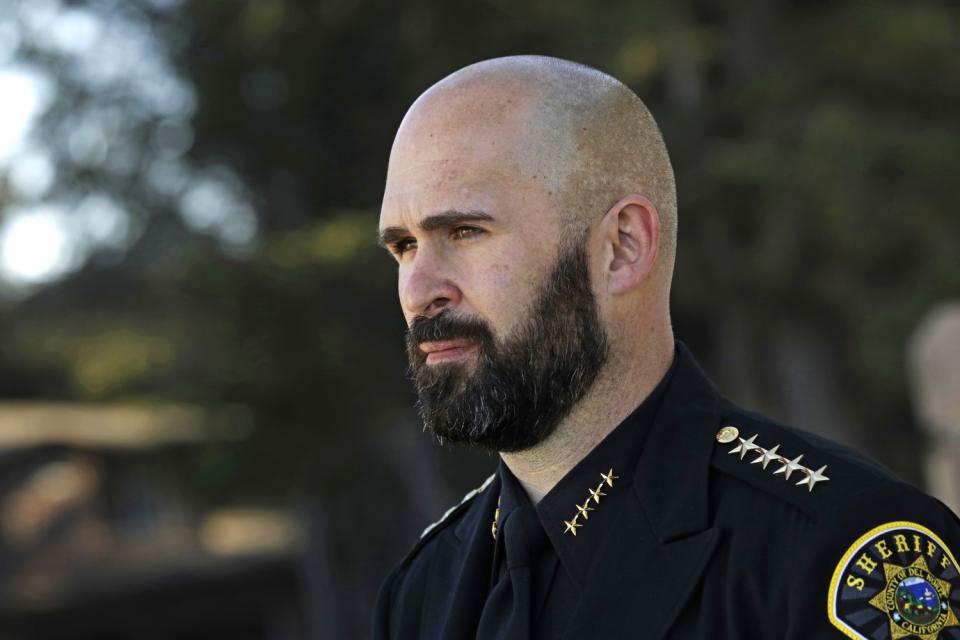
"It takes just one person," he said.
Like the rest of California, restaurants and taverns are temporarily closed here, as are many nonessential businesses, such as tattoo and massage parlors. The county has also ordered all campgrounds, RV parks and hotels to either close down or shut their doors to guests — unless those visitors plan to stay for 30 days.
The thousands of California sea lions congregating around the city's harbor and picturesque lighthouse don't seem to mind the shutdown. Their chatter and barks can be heard throughout the downtown area all day and through the night.
So far, the restrictions on businesses seem to have worked, said Apperson.
“People get upset when they see out-of-state license plates, like, from Oregon, driving around here,” he said. “They trust one another in this community to do the right thing. But it’s the people who come from outside. That’s a different story.”
At the same time, he's concerned about government overreach, and the definition of what makes a business essential versus nonessential.
While gun stores have been shuttered in cities such as Los Angeles, Pasadena and San Jose, Apperson and others see them as vital to maintaining calm and a sense of well-being in the region.
“Lots of us hunt, here,” said Leslee Cates, who is waiting from the state to get final approval to sell guns. She is the owner of PRO2Arms, which is currently based out of her house on the outskirts of town.

“Most people who live here are familiar with guns. We see them as essential: for hunting game and for protecting ourselves and our homes,” she said. “The problem is when people who aren’t familiar with them start buying them in a panic. But, that’s not the case here.”
Down at the docks, people are also concerned the government could restrict their right to fish recreationally.
Pandemonium transpired on a recent teleconference call with state fishery regulators, who were discussing the possibility of a coronavirus-spurred limited ban on sportfishing.
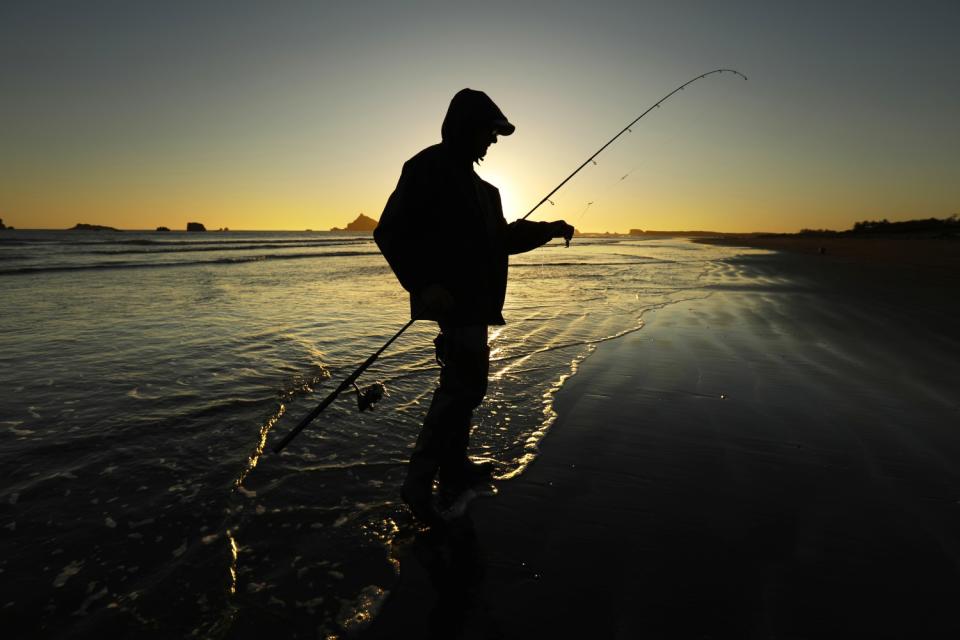
“That was craziness,” said Chris Hegles, the manager of Crescent City’s Englund Marine, who was on the call. He said people were concerned the government was going to prohibit them from getting on their own boats and heading out to the ocean.
Signs around the marina urge boaters to go out on the water only with immediate family members.
And for now, everybody seems to be respecting the public health orders. But Apperson worries that if people feel their way of life is being taken away, that could be a problem.
“I think we’ve responded well and the precautions we have taken are necessary,” he said. “But if you start doing things that go against the data that we have, well, I'm not sure that's a good thing.”
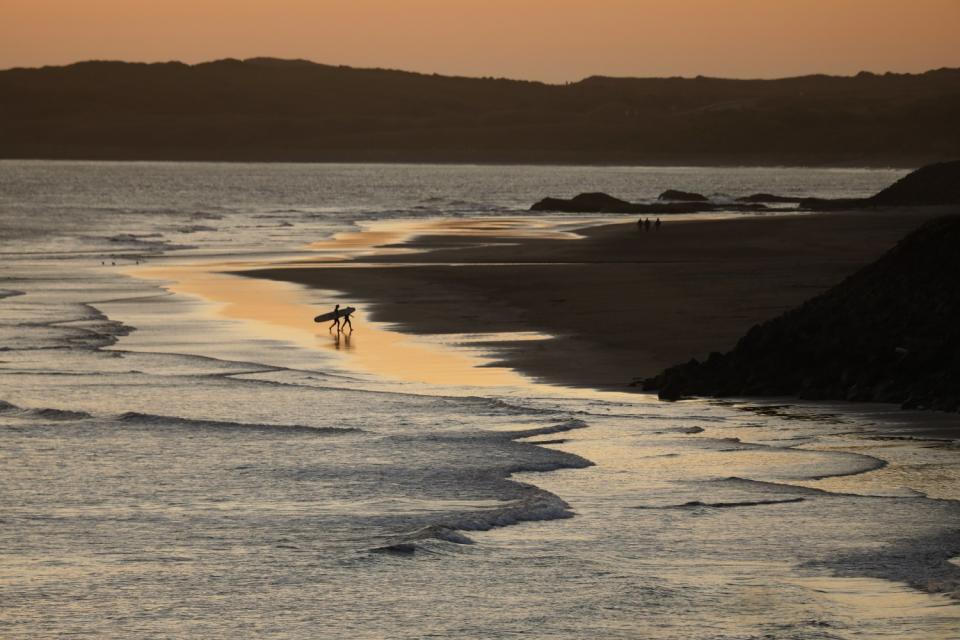
Los Angeles Times reporter Susanne Rust and photographer Carolyn Cole are embarking on a road journey throughout California. They aim to give voice to those in remote parts of California as they grapple with the worst health and economic calamity of our lifetimes.

